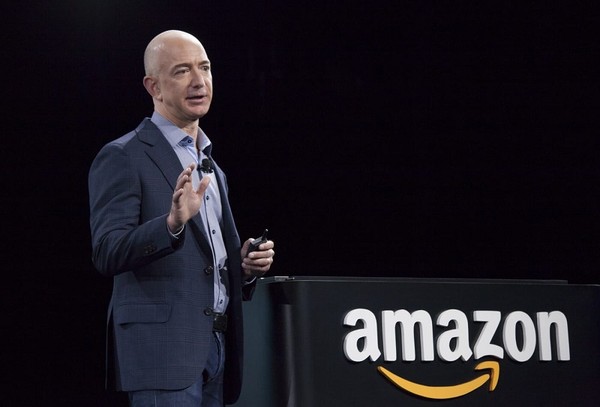Amazon founder and CEO Jeff Bezos has been making headlines recently for a host of reasons. He has been called to testify before the US Congress about his company’s questionable data practices. His wealth has increased by 25 billion USD since January 1, more profit than any other individual in the same period, despite the COVID-19 pandemic. Amazon has also been heavily criticized after having fired three employees who spoke out against the company’s negligence of its workers’ safety during the pandemic. But, the most sensational reason of all is a recent report by a startup called Comparisun which predicts that Bezos could become the world’s first “trillionaire” by 2026.

Since Comparisun’s report was published, many experts were quick to point out the impossibility of its prediction. After all, Bezos’ net worth is currently around 150 billion USD, which would have to multiply sevenfold in the next six years for him to reach trillionaire status. Still, Bezos’ wealth is not to be underestimated — he is currently the wealthiest person in the world, worth at least 40 billion USD more than Bill Gates, who is in second place. Gates, founder of Microsoft, was notably the richest man for all but four years between 1995 and 2017. Bezos, on the other hand, only entered Forbes’ top 10 billionaires list in 2016 at number 5, quickly overtaking Gates in 2018 for the top spot and becoming the world’s first centi-billionaire. How, then, did Bezos go from being a barely recognizable name to becoming the richest person in the world?
Born to humble beginnings in New Mexico, USA, Bezos was always fascinated with science and technology. He always excelled in school: attending science training programs, graduating high school valedictorian, receiving numerous scholarships, and graduating summa cum laude from Princeton University with a degree in electrical engineering and computer science. He once spoke of his dream to “get all people off the earth and see it turned into a huge national park” in his high school graduation speech. Clearly, from a very young age, Bezos’ visionary character and scientific inclination were unmistakable.
In 1994, Bezos founded Amazon as an online bookstore. Many business experts at the time were skeptical of its chances for success, but Bezos believed that the Internet’s growth would ensure Amazon’s longevity. He was right. Over time, Amazon expanded into selling other products such as music, video, and consumer goods. Now, the company is synonymous with the online retailing industry. But Bezos’ vision and ideas aren’t the only reason for the success of Amazon and the growth of his own wealth. He’s also a ruthless businessman.
When Amazon was still in the early stages of expanding its operations, Bezos financed the aggressive acquisition of many of its smaller competitors to ensure Amazon’s dominance. Under his leadership, Amazon spends millions of dollars every year in political lobbying to influence government decisions and legislation. Perhaps due to this, Amazon has been awarded government contracts worth billions but paid zero federal income tax in 2017 and 2018. In addition to all this, Amazon employees claim that the company provides poor working conditions, demands too much from its workers, and takes advantage of hiring temporary workers who do not receive the same benefits as permanent employees. Because of these practices, Bezos has come under fire from both sides of American politics, having been criticized by both President Donald Trump, a Republican, and progressive senator Bernie Sanders, among others.
Regardless of the plausibility of Comparisun’s predictions about his wealth, one thing is clear: if anybody in the world could become the first trillionaire, it’s probably Jeff Bezos. His innovative vision and ideas, coupled with his calculating ruthlessness, are what made him the richest person alive faster than anybody else. But whether he should become a trillionaire — whether it’s right and just — is an entirely different question altogether.

